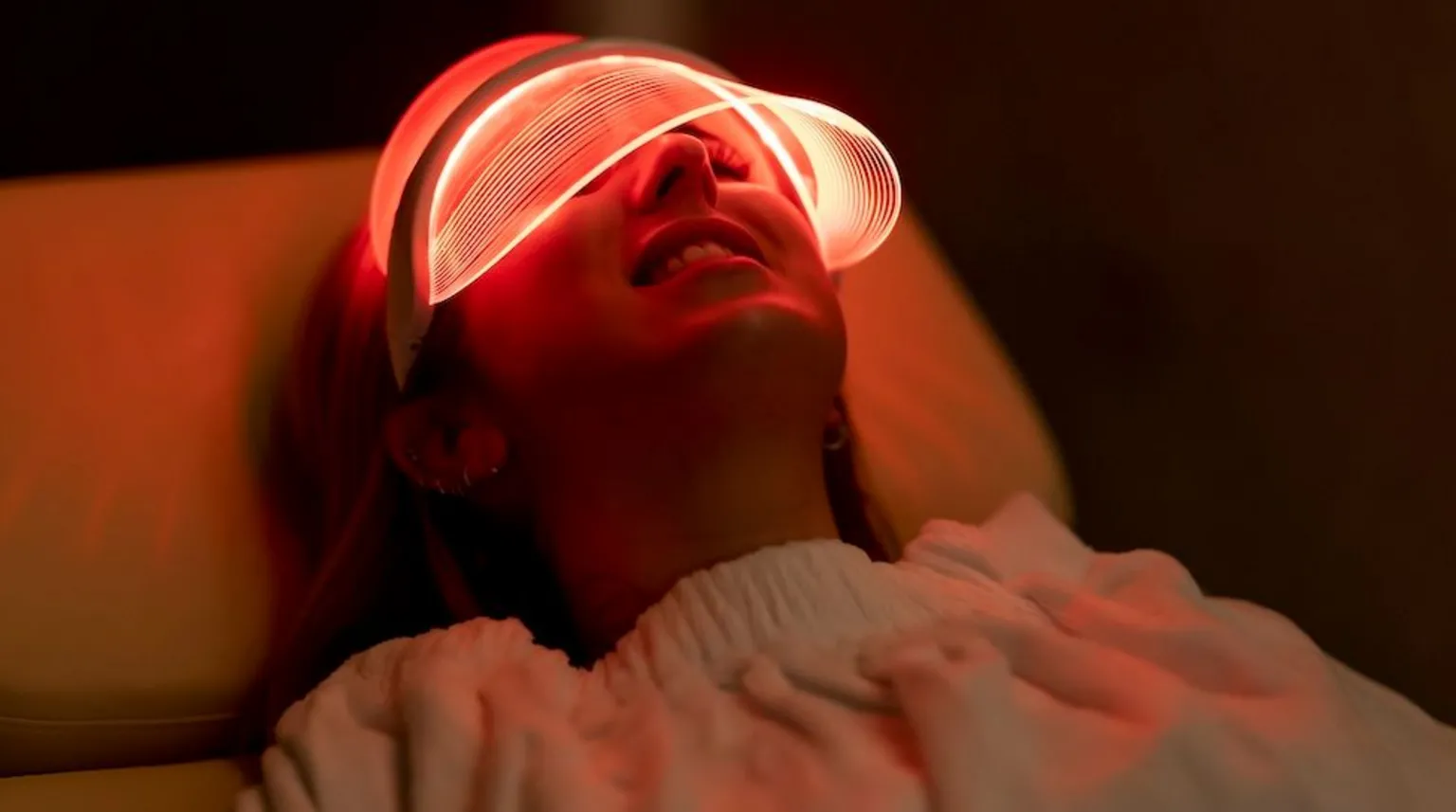
The LED market is set to be worth £600m globally by 2032 – which is nearly double what airflow technology like the Dyson Airwrap will be worth at the same point.
According to consultant dermatologist Dr Jonathan Kentley, LED technology works by causing the skin to absorb light energy, which then triggers cellular changes in a process known as photobiomodulation (PBM).
“This allows new blood vessels and skin cells to be formed, along with more collagen and elastin,” he tells the BBC.
“PBM has also been used to treat acne as it has anti-inflammatory effects and reduces the amount of oil in the skin,” he adds.
A recent comprehensive study of PBM stated that more clinical trials on humans need to take place to fully understand how it actually works.
US space agency Nasa first began studying the effect of LEDs in the 1990s to see if it could help in cell regeneration.
Since then, medical-grade devices have been used by dermatologists “for many years”, according to Dr Kentley.
But at-home masks have only been on the retail market for about five years and cost a fraction of the medical devices.
The main differences between medical devices and High Street masks are the strength of the LEDs, the number of bulbs on the device and how close they sit to the skin’s surface when being used.
LED therapy masks are ‘visually interesting’
Dr Justine Kluk, who runs her own dermatology clinic and specialises in treating acne, believes that while at-home masks “sound promising”, mask wholesale manufacturers are “speculating” about their benefits.
“I don’t believe anyone has run clinical trials of the LED mask at home to see if it is the same dose as a device you would use in a clinic or hospital,” she tells the BBC.
“No-one is testing these devices in big enough sample sizes for long enough periods of time for us to feel really confident.
“So I believe the benefits from using one of these masks is probably very modest,” she adds.
Skincare makes up nearly half of all global sales in the beauty industry – and is set to continue to grow more than the likes of haircare, make-up and fragrance in the next year.
This is being boosted by Generation Z (those born between 1995 and 2009) and even Generation Alpha (born 2010 to now) whose skincare fascination is said to be fuelled by social media trends.
Dr Kluk says she has noticed “that people’s interest in at-home skin care and treatments has increased hugely since Covid” and believes the “visually interesting” element of the at-home LED mask makes it such an eye-catching product to sell online.
“People sitting watching TV wearing a red LED mask increases people’s curiosity.
“Every other consultation I’ve had for the last six months, has involved people asking me about LED masks,” she adds.

